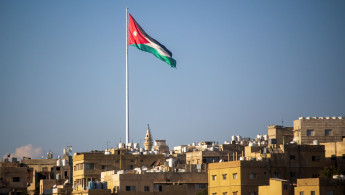Jordan's Islamists boosted in election by protest votes over Israel's war on Gaza
Jordan's moderate Islamist opposition made significant gains in Tuesday's parliamentary election, initial official results showed on Wednesday, boosted by anger over Israel's war in Gaza and recent incursions into the occupied West Bank which have killed dozens.
The Islamist Action Front (IAF) also benefited from a new electoral law that encourages a bigger role for political parties in the 138-seat parliament, though tribal and pro-government factions will continue to dominate the assembly.
The IAF, the political arm of the Muslim Brotherhood, won up to a fifth of the seats under the revamped electoral law, which for the first time allocated 41 seats for parties, according to preliminary figures seen by Reuters and confirmed by independent and official sources.
"The Jordanian people have given us their trust by voting for us. This new phase will increase the burden of responsibility for the party towards the nation and our citizens," Wael al Saqqa, head of the IAF, told Reuters.
The election represents a modest step in a democratisation process launched by King Abdullah as he seeks to insulate Jordan from the conflicts at its borders, and speed up the slow pace of political reforms.
Under Jordan's constitution, most powers still rest with the king who appoints governments and can dissolve parliament. The assembly can force a cabinet to resign by a vote of no confidence.
The voting system still favours sparsely-populated tribal and provincial regions over the densely-populated cities mostly inhabited by Jordanians of Palestinian descent, which are Islamic strongholds and highly politicised.
The IAF's success in Tuesday's poll was in part boosted by protest votes against the Jordanian government for its normalisation policies with Israel, as the war in Gaza has prompted anger among much of Jordan's Palestinian population.
The country's tribal communities historic solidarity with Palestinians also played a role in the surge in support for the IAF.
The recent gun attack by a Jordanian truck driver that killed three Israelis at the Allenby Jordan-West Bank crossing on Sunday was regarded by some as an act of resistance in solidarity with the Palestinians' fight against the Israeli occupation.
Celebrations were witnessed in Jordan's capital Amman and southern regions on Sunday where the deadly attack was seen as avenging the deaths of the thousands being killed by Israeli forces in Gaza.
The low turnout among Jordan's 5.1 million eligible voters in Tuesday's poll of 32.25% was also indicative of the much of the population's antipathy towards the ruling party and its ties with Israel.
As well as the war in Gaza, Israel's recent bloody incursions into West Bank cities have further ignited Jordanian feelings of frustration at the monarchy's relations with Israel.
More than half of Jordan's population is of Palestinian origin, with many expelled from towns in the occupied West Bank and present day Israel during the 1948 Nakba.
Jordanian officials say the fact that elections are being held at all while the war in Gaza and other regional conflicts are raging demonstrates their country's relative stability.
The Muslim Brotherhood has been allowed to operate in Jordan since 1946. But it fell under suspicion after the Arab Spring, which saw Islamists pitted against established powers in many Arab countries.




 Follow the Middle East's top stories in English at The New Arab on Google News
Follow the Middle East's top stories in English at The New Arab on Google News
![A group of Palestinians, foreign and Israeli activists gather to participated in an olive picking event on the land in the town of Battir, which is under threat of confiscation by Israel in Bethlehem, occupied West Bank on 8 November 2024. [Getty]](/sites/default/files/styles/image_330x185/public/2182930803.jpeg?h=199d8c1f&itok=__0LgGsa)

![People gathered around the rubble of destroyed houses to search for survivors [Getty]](/sites/default/files/styles/image_330x185/public/2024-11/GettyImages-2184733820.jpg?h=199d8c1f&itok=NiM1LO2f)